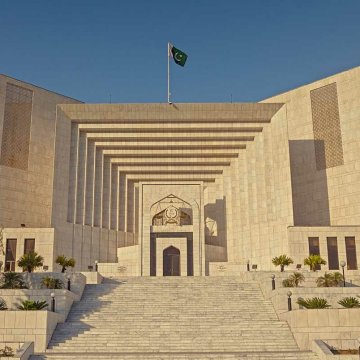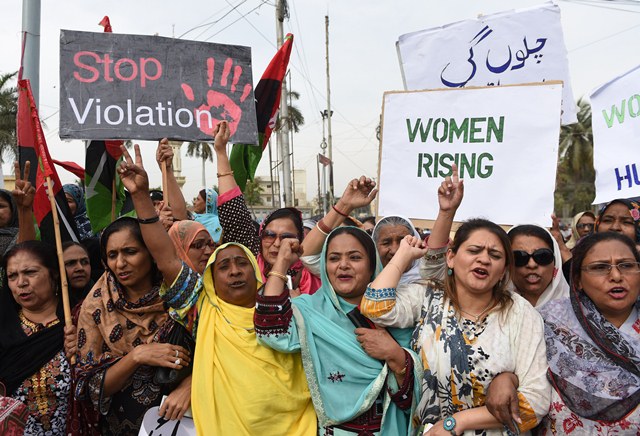- About
- Topics
- Picks
- Audio
- Story
- In-Depth
- Opinion
- News
- Donate
- Signup for our newsletterOur Editors' Best Picks.Send
Read, Debate: Engage.
| topic: | Election |
|---|---|
| located: | Pakistan |
| editor: | Shadi Khan Saif |
Millions of Pakistanis living in the country’s biggest city, Karachi, finally secured their right to vote for the long-awaited municipal elections after prolonged delay and neglect.
The polls, held on 15 January, would deliver a mayor to the metropolis that was once called the ‘City of Lights,’ but has recently become notorious for its roadside garbage dens, lawless streets and choked sewage, among other urban disasters. The country’s election commission took the decision to not further postpone the vote, despite pressing demands from some ruling parties citing security concerns as the reason for pushing the dates even further.
But beyond that, the significance of holding these elections on time is far more important than simply fixing the municipality issues - which should be dealt with by the concerned departments, regardless of a newly-appointed mayor. Rather, they are about ensuring that people have a voice in government affairs and that the ownership of the land progresses responsibly, rather than governing citizens as voiceless subjects.
Manipulative practices of delaying polls and generating other hurdles are nothing less than corruption - if a government elected by the public for a certain period to serve them has failed to ensure their welfare and hold elections for its successors on time, it has simply failed.
Karachi, also known as the mini-Pakistan, gives a very clear sense of what is going wrong in the country: deteriorating democratic values, worsening economy and surging fundamentalism. The public representatives, in collaboration with the security establishment, are undermining democracy, causing frustration for its citizens and forcing the youth towards extremes.
The mushrooming of extremist parties is directly linked to the lack of representative democracy at the grassroot level, where the majority of population in third world countries like Pakistan first come in contact with elected officials. Without local representation, their voices are not heard when they demand for basic and immediate needs of life, such as electricity and water.
However, this issue is not restricted to rural or state levels: even in the country’s capital, Islamabad, the national authorities hardly engage or consult with their constituents, who bear the brunt of the ruling elite’s misplaced priorities. From foreign policy moves to economic policy, health and education spendings to infrastructure development - not to mention defense spending - the government's priority is not the welfare of the people.
Putting people first, respecting their right to vote on time and acknowledging their ownership of the country are the first steps to steering Pakistan out of the grim uncertainties.
Image by Supreme Court of Pakistan

